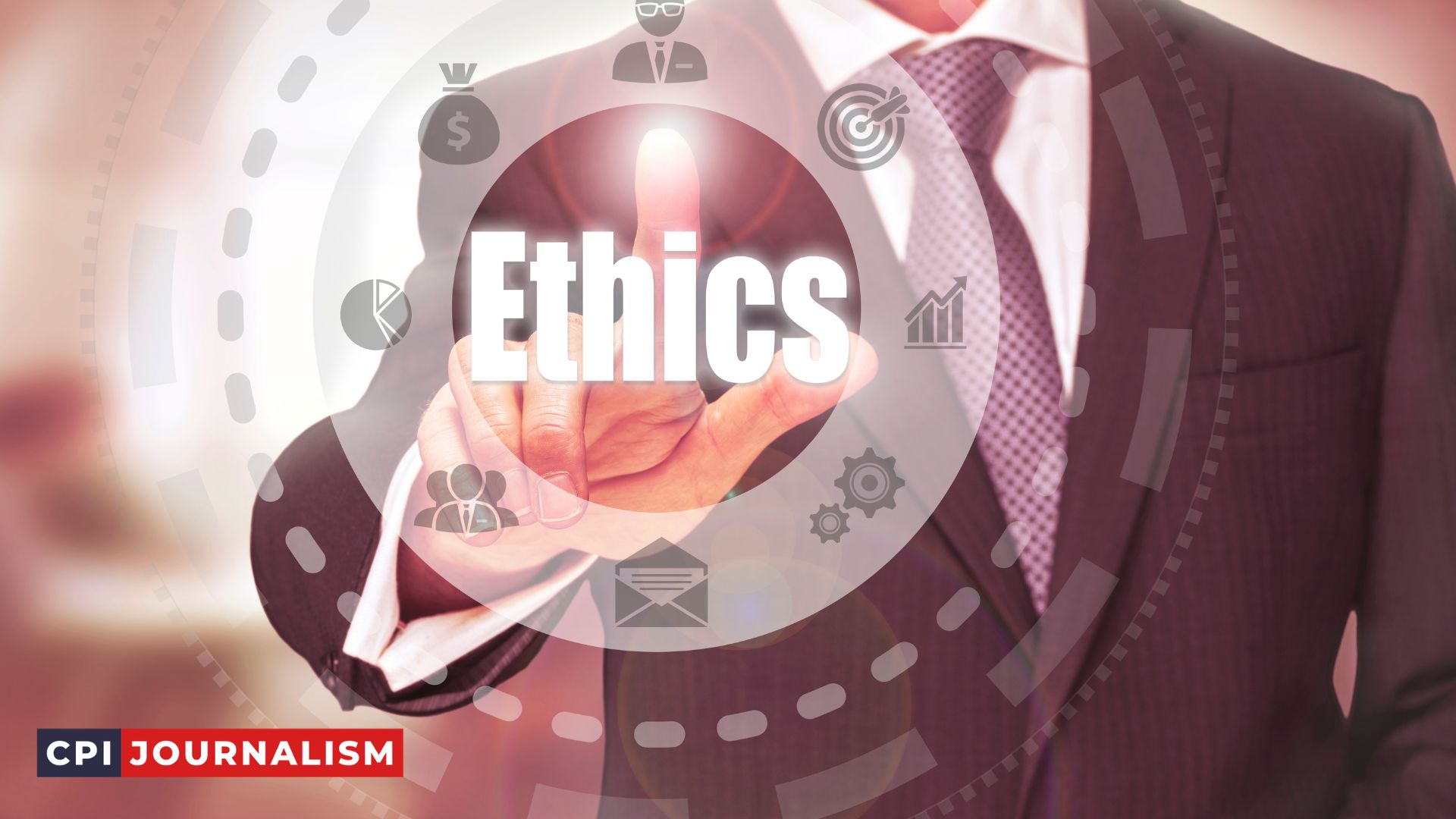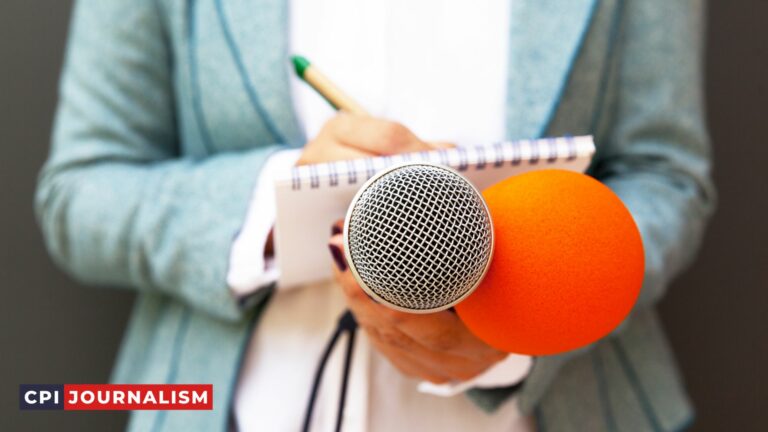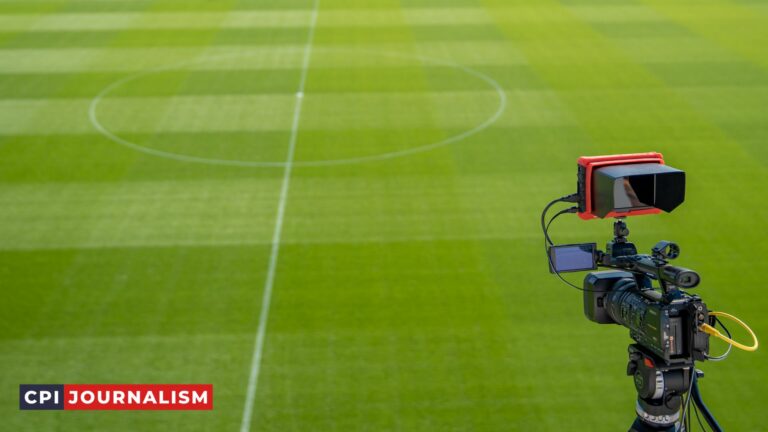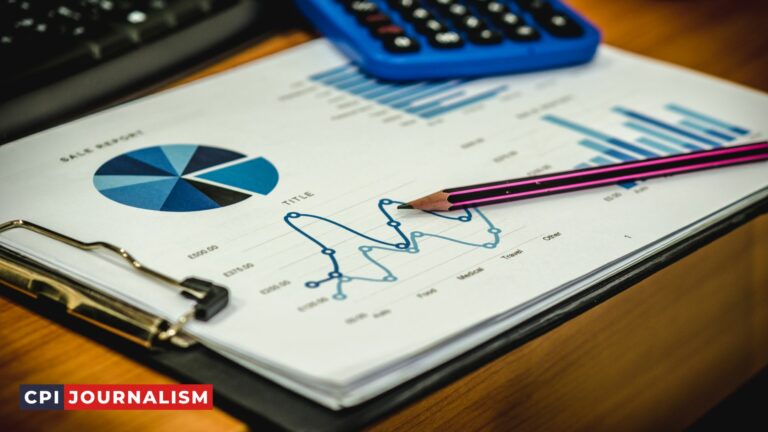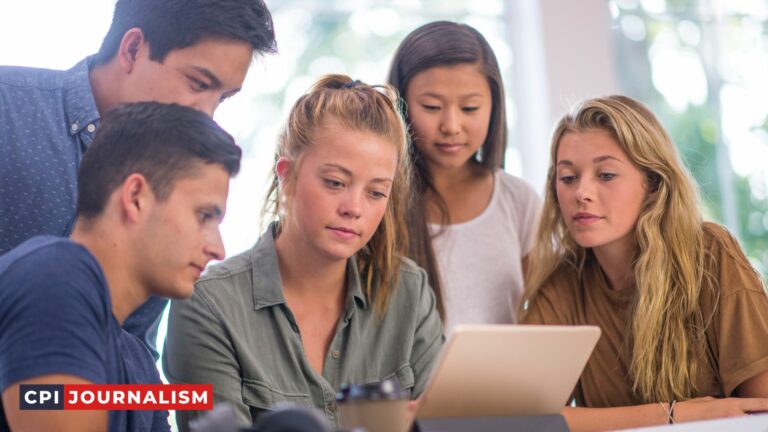What Are The Ethical Considerations For Sports Journalists?
As an experienced sports journalist, I know firsthand the importance of upholding ethical principles in our work. As we cover the world of sports and its athletes, journalists must be mindful of the ethical considerations that come with reporting on sports news.
From maintaining objectivity to respecting the privacy of athletes, there are countless ethical considerations that we must be aware of and adhere to when producing our stories.
In this article, I will discuss some of the key ethical considerations for sports journalists that every journalist should be mindful of.
A. Overview of Ethical Considerations
Sports journalism has unique ethical considerations due to the nature of the industry. As a sports journalist, it is essential to maintain the highest ethical standards in order to ensure accuracy and fairness in reporting.
The following points provide an overview of the ethical considerations for sports journalists.
1. Conflicts of Interest: As a sports journalist, it is important to be aware of and avoid any potential conflicts of interest. For example, a journalist should not accept any gifts or favors from athletes, teams, or sports organizations that they cover.
It is also important to disclose any relationships or associations that may influence the reporting of a story.
2. Accuracy: Journalists should strive to provide accurate and well-researched information. This means verifying facts, double-checking sources, and avoiding sensationalism.
Journalists must also take into account the potential implications of their stories and be mindful of the potential impact their reporting can have on the people and organizations involved.
3. Fairness: Sports journalists should strive to be impartial and present all sides of the story. This means avoiding personal biases and providing a balanced account of the facts. It is important to avoid inflammatory language, sensationalism, and misinterpretations of the facts.
4. Respect: Respect for athletes, teams, and sports organizations is essential. A journalist should never attack, ridicule, or otherwise attempt to discredit any person or organization they are covering.
5. Confidentiality: Sports journalists should maintain the confidentiality of sources. This means protecting the identities of sources and not revealing any confidential information.
These ethical considerations are essential for sports journalists to adhere to in order to maintain the credibility of the profession. By adhering to the highest ethical standards, sports journalists can ensure that their reporting is accurate, fair, and respectful.
II. Ethical Considerations For Sports Journalists
As a sports journalist, it is essential to understand and adhere to the ethical considerations of the profession. Ethical considerations are important when it comes to reporting on sports, as they help ensure that sports journalism is accurate, honest, and fair.
The first ethical consideration is to respect the game and the players. This means that journalists should not attempt to influence the outcome of a game or manipulate players. It is also important to avoid sensationalizing the game or making inaccurate or exaggerated claims.
Another ethical consideration is to respect the privacy of players and the team. Journalists should not intrude on the personal lives of players or members of the team. They should also refrain from using any confidential information they have obtained in their reporting.
The third ethical consideration for sports journalists is to remain impartial. Journalists should not be biased in their reporting and should strive to present both sides of any story. They should also strive to be balanced in their reporting, avoiding both exaggeration and under-reporting.
Finally, it is important for sports journalists to be aware of conflicts of interest. Journalists should avoid reporting on any stories which involve people or organizations with which they have a personal or financial relationship.
By adhering to these ethical considerations, sports journalists can ensure that their reporting is honest, accurate, and fair.
A. Accuracy And Fairness
Accuracy and fairness are two of the most important ethical considerations for sports journalists. Accurate reporting is essential in order to ensure that readers are getting the most accurate and up-to-date information.
his can be difficult to achieve, as sports can move quickly and easily, and it’s important to ensure that all facts and figures are correct.
It’s also important to ensure that any quotes or statements attributed to players, coaches, or other team personnel are accurate, and that the journalist has taken necessary steps to confirm the accuracy of any information.
In addition to accuracy, it’s important for sports journalists to be fair in their reporting. Journalists should strive to present all sides of any issue, particularly when there is a dispute or disagreement.
It’s also important to ensure that all parties are given an equal opportunity to comment, and that any stories are presented in an unbiased manner. Journalists should also ensure that they are not taking sides in any disputes, and that they remain objective in their reporting.
Finally, it’s important to ensure that the journalist is not making any assumptions or judgments without adequate evidence.
1. Reporting The Facts
As a sports journalist, it is important to understand the ethical considerations that come with reporting the facts. The most important ethical consideration is to ensure that the facts are accurate and that any sources used are reliable.
This means checking facts multiple times to verify their accuracy, and double-checking sources to make sure they are reputable. Additionally, it is important to avoid bias when reporting facts. Bias can be introduced through the language used in the report, as well as any opinions expressed.
Furthermore, it is important to refrain from sensationalizing facts. This means avoiding the use of exaggerated language or overly dramatic descriptions that could distort the truth of the facts.
It is also important to avoid sensationalizing stories about athletes or teams by creating a false narrative. It is also important to ensure that any facts that are reported are relevant to the story being told and are not being used to create a false narrative.
Finally, it is important to avoid any kind of plagiarism when reporting the facts. Plagiarism is using someone else’s words or ideas without giving them credit. Not only is plagiarism unethical, but it is also illegal and can lead to serious consequences.
In summary, when reporting the facts as a sports journalist, it is important to ensure accuracy, avoid bias, refrain from sensationalizing, and avoid plagiarism. These considerations are essential in maintaining a high standard of ethical journalism.
2. Avoiding Bias
As a sports journalist, it is important to be aware of the potential for bias when covering a story. Bias can range from subtle to overt and can be based on a variety of factors, including race, gender, social class, or even a personal opinion.
Bias can lead to inaccurate or incomplete reporting, which can have serious consequences.
To avoid bias in our reporting, it is essential to practice ethical journalism. This includes taking the time to research a story thoroughly, being open-minded and objective, and avoiding personal opinion and preconceived notions.
Journalists should also strive to represent all sides of an issue, giving the same weight to each opinion.
It is also important to be aware of the potential for bias when interviewing sources. Asking questions in a neutral, non-judgmental way will help to ensure that the source’s opinion is accurately reflected.
Journalists should also be aware of their own biases, as these can affect how they interpret and report on a story.
Finally, it is important to remember that bias can be unintentional. As such, it is important to maintain awareness and to double-check our work for any signs of bias.
Taking the time to reflect on our work and to consider alternative perspectives can help to ensure that we are presenting a fair and accurate account of the story.
3. Verifying Sources
As a sports journalist, it is important to ensure that all of the sources used in an article are reliable and accurate. This can be accomplished through a number of methods, including fact-checking and verifying the accuracy of any claims made by sources.
When verifying sources, it is important to take the time to thoroughly check the accuracy of the information provided. Ask questions to ensure that the source is an expert in their field and has the necessary qualifications to provide reliable information.
Additionally, it is important to make sure that the source is not providing biased or inaccurate information.
Furthermore, sports journalists should be aware of any potential conflicts of interest that a source may have. For example, if a source works for a team or organization, they may be less likely to provide objective information.
Finally, it is important to remember that sources should always be credited whenever possible. This ensures that any information provided is attributed to the right person or organization.
Additionally, it helps to build credibility for the article, as readers will be more likely to trust an article that includes properly credited sources.
B. Confidentiality
It is extremely important for sports journalists to maintain confidentiality in the course of their work. It is not uncommon for journalists to be privy to sensitive information that could have serious repercussions if revealed to the public.
This could include details of a player’s medical condition, a team’s strategies, or any other confidential information related to sport. It is essential for journalists to respect the confidentiality of the information and use it responsibly, as any breach of trust could damage the reputation of the journalist.
Journalists must also remember that even if a story is true, it may not be in the best interest of the team or the players to reveal it to the public.
It is important for journalists to weigh the pros and cons of a story before deciding to publish it. This could involve consulting with the relevant authorities or taking the opinion of a third party to ensure that the story is handled in the most ethical manner.
Finally, journalists must also be aware of the laws governing the release of confidential information.
In some countries, the release of certain information could be punishable by law, and journalists must always be mindful of this when pursuing a story.
By maintaining confidentiality and respecting the laws of the land, journalists can ensure that their work is conducted in an ethical and responsible manner.
1. Protecting Sources
As a sports journalist, one of the most important ethical considerations is protecting your sources. It is essential to maintain the trust of your sources. Without that trust, you won’t be able to access the information you need to write important stories.
When using sources, it is important to make sure that they are protected. It is essential to ensure that they are not identified in any way that could cause them to be identified and subject to harm. This could be through physical harm or through any other form of retribution.
It is important to consider the potential consequences of identifying the source and make sure that the source’s safety is not at risk.
It is also important to ensure that sources are not manipulated in any way. It is unethical to use sources to push a particular agenda or to provide information that is not true. In some cases, it may be necessary to verify the accuracy of information with multiple sources.
Finally, it is important to keep the confidentiality of sources. It is essential to not reveal the identity of sources without their permission, unless it is vital for the story. It is also important to not use information from sources in any manner that could harm them or their reputation.
In summary, protecting sources is an essential ethical consideration for sports journalists. It is important to ensure that sources are not identified, manipulated, or have their confidentiality violated in any way.
This is necessary in order to maintain the trust of sources and to ensure that the information being reported is accurate and reliable.
2. Maintaining Privacy
As a sports journalist, it is important to ensure that the athletes and their families have their privacy respected. This means that journalists should not take pictures of athletes in private locations such as their homes or in the locker room.
Furthermore, it is important to be aware of the impact that an article may have on an athlete’s reputation, as well as their future career prospects. Journalists should always be respectful of the personal lives of the athletes, and should not make assumptions or publish stories without verifying the facts.
When interviewing athletes, journalists should also be mindful of the questions they are asking. In some cases, athletes may be reluctant to answer personal questions or may feel uncomfortable discussing certain topics.
It is the responsibility of the journalist to respect the athlete’s boundaries and to not pressure the athlete into saying anything that they do not wish to.
Finally, journalists must ensure that any information that is collected about athletes is stored securely and is not shared with any third parties. This includes photos, videos, and personal data.
By doing this, journalists can maintain the privacy of the athletes and ensure that their information is not misused.
3. Respecting Anonymity
As a sports journalist, it is important to respect the wishes of those who wish to remain anonymous. When interviewing or writing about an individual who requires anonymity, it is important to take extra precautions to ensure that their identity remains protected.
This can include obtaining written permission from the individual prior to conducting an interview, or using aliases in any written work.
It is also important to ensure that any personal information provided by the individual is kept confidential and not used in any way that could lead to their identification.
When writing stories that involve confidential sources, it is important to ensure that the story is accurate and complete. It is also important to ensure that the source is not misrepresented or taken out of context.
In addition, it is important to avoid speculating on the identity of anonymous sources or making assumptions about their motivations. It is also important to make sure that any information provided by anonymous sources is verified with other sources before being published.
Finally, it is important to make sure that any information provided by anonymous sources is not used in a way that could lead to their identification.
This includes not using their actual name, or publishing any details about them that could lead to their identification. It is also important to make sure that any information provided by anonymous sources is used responsibly and not for sensationalist purposes.
C. Conflict of Interest
Conflicts of interest are an important ethical consideration for sports journalists. A conflict of interest exists when a journalist’s personal interests or relationships interfere with their professional responsibilities or impartiality.
In the sports journalism world, this could mean a journalist has a personal connection to a team or athlete they are covering, or a financial relationship with a team or athlete.
It could also mean a journalist has a relationship with a sponsor of a team or athlete that could be seen as influencing their reporting.
When a conflict of interest exists, the journalist must disclose the conflict to their audience and make sure they are not biased in their reporting.
This means they should not show favoritism to any particular team or athlete, and make sure that their reporting is balanced and impartial. They should also not use their position to gain any personal benefit or advantage.
The audience’s trust is paramount and a journalist should always strive to remain unbiased and impartial in their reporting.
As a result, conflicts of interest should be avoided wherever possible and any conflicts that do exist should be disclosed to the public. This will ensure that the audience is receiving accurate and unbiased information.
1. Avoiding Personal Interests
As a sports journalist, it is important to remember that your job is to report on sporting events and to present a balanced and impartial view of the situation.
It is essential to avoid any personal interests or biases when reporting on a sporting event or athlete. This means refraining from expressing your own opinions or views on the matter, and instead, reporting the facts and presenting a fair and unbiased account of the story.
It is also important to be aware of any potential conflicts of interest that may arise, such as if you have a personal relationship with an athlete or team.
In such cases, it is best to disclose any such relationships to your editor or producer to ensure that you remain impartial and objective in your reporting.
Additionally, it is important to avoid any activities that could be perceived as trying to influence the outcome of a sporting event, such as betting on a game or providing a team or athlete with preferential treatment.
Doing so could be seen as a violation of journalistic ethics and could have serious consequences for your reputation and career.
2. Refraining From Endorsements
Sports journalists have a responsibility to remain impartial and unbiased in their reporting. This means that they should refrain from endorsing or promoting any particular team, player, or organization.
Endorsing any party or opinion can damage the journalist’s credibility and lead to accusations of bias and favoritism.
It is important for sports journalists to maintain a professional distance from any team, player, or organization they are covering. This includes refraining from attending social events, accepting free tickets or merchandise, or communicating with players outside of a professional context.
If a journalist is found to be engaging in such activities, it could compromise the journalist’s impartiality and lead to accusations of bias.
Sports journalists should also be careful to avoid any conflicts of interest when covering teams or players.
If a journalist has a personal relationship with any team, player, or organization, they should be transparent about the relationship and refrain from covering any stories related to their connection.
Finally, sports journalists should exercise caution when discussing their own opinions or beliefs in relation to any team, player, or organization.
While it is important to have an opinion, it should be expressed in such a way that it does not undermine the journalist’s impartiality or lead to accusations of bias.
3. Abiding By Professional Standards
As a sports journalist, there are certain professional standards of conduct that should be adhered to. These standards ensure that journalists maintain their credibility and uphold the integrity of the profession.
First and foremost, it is important to adhere to truth and accuracy. Journalists must ensure that all their reporting is based on accurate and verifiable facts. They should strive to be as objective and impartial as possible when covering sporting events and stories.
Second, journalists must maintain a high level of professionalism at all times. This includes avoiding any form of bias or favouritism in their reporting. Journalists should also avoid any kind of conflict of interest or unethical behaviour, such as accepting gifts or other forms of compensation from sources.
Third, journalists should avoid any kind of sensationalism or exaggeration in their reporting. This includes avoiding the use of sensational headlines and overstating facts.
Finally, journalists must be mindful of the privacy and confidentiality of their sources. This includes ensuring that sources are identified and quoted accurately, and ensuring that sensitive information is not revealed without prior consent.
By adhering to these professional standards of conduct, journalists can ensure that their work is credible and trustworthy. This will in turn help to maintain the integrity of the profession, as well as protect the reputation of the journalist.
III. Conclusion
Sports journalism is a unique field that requires ethical considerations beyond what is required for other types of journalism.
Sports journalists must be mindful of the power they possess in their reporting and the influence it can have on athletes and the public. It is necessary to ensure that stories are reported fairly, accurately, and without bias.
Sports journalists should also consider the impact of their reporting on athletes, leagues, and fans. The reporting of sports stories should never be used to promote any particular agenda or to vilify anyone.
Finally, sports journalists must take responsibility for their actions and be aware of the potential consequences of their reporting. As journalists, we must remain vigilant and strive to report the truth in all circumstances.
A. Summary Of Ethical Considerations
Sports journalism can be a rewarding and exciting profession, but it comes with a great responsibility to uphold the highest ethical standards.
As a sports journalist, it is important to be aware of the ethical considerations that must be taken into account when writing about athletes, teams, and organizations.
The foremost ethical consideration for sports journalists is to write objectively. This means avoiding biased reporting and providing an unbiased account of the facts. It is critical to ensure that all sources are properly credited and all opinions are backed up by facts.
It is also important to be mindful of the language used and to avoid sensationalizing or exaggerating stories.
In addition, it is essential to respect the privacy of athletes and organizations. Journalists should be mindful of the potential impact of their reporting and should never publish information that could be considered damaging to the reputation of an individual or organization.
They should also be wary of the potential conflicts of interest that can arise when reporting on athletes or teams with whom they are associated.
Finally, sports journalists should always strive to maintain their integrity and maintain their commitment to ethical journalism.
They should be aware of any potential conflicts of interest and should never accept bribes or payments for favorable coverage. They should also be aware of the ethical guidelines set forth by their employer or organization.
B. Importance Of Ethical Practices
Sports journalism is a field of journalism that requires its practitioners to adhere to certain ethical guidelines in order to maintain objectivity, accuracy, and fairness.
It is essential for sports journalists to maintain their ethical standards in order to ensure that their reporting is as impartial and unbiased as possible.
Ethical practices are also important for sports journalists to ensure that they are keeping the public informed in an honest and transparent manner.
Firstly, ethical practices are important for sports journalists in order to ensure that they are providing accurate and truthful reporting.
Sports journalists must make sure that they are verifying all the facts and information they are reporting and that they are not exaggerating or making false claims. This is essential to ensure that the public is accurately informed and that they can trust the information they are receiving.
Secondly, ethical practices are important to ensure that sports journalists are not taking advantage of their position and using it to favour one side over the other.
Sports journalists should be impartial and unbiased in their reporting, and should not allow their personal opinions or biases to influence their reporting.
They should also be aware of potential conflicts of interest and should make sure that they are not engaging in activities that could compromise their objectivity.
Finally, ethical practices are important for sports journalists to ensure that they are not exploiting athletes or organizations for their own gain.
Sports journalists should make sure that they are respecting the privacy of athletes and organizations and that they are not using their position to gain access to confidential information or to gain an unfair advantage.
Overall, ethical practices are essential for sports journalists in order to ensure that they are providing accurate and impartial reporting and that they are not exploiting athletes or organizations for their own gain.
It is essential for sports journalists to maintain their ethical standards in order to ensure that their reporting is as honest and transparent as possible.
C. Resources for Further Information
As an experienced journalist, I strongly encourage all aspiring sports journalists to continue learning about ethical considerations for sports journalism.
The following materials provide useful information and resources to help you become a more ethical and responsible journalist:
1. The Society of Professional Journalists (SPJ) Code of Ethics: The SPJ Code of Ethics is the benchmark of ethical conduct for journalists, offering guidelines on truth, accuracy and fairness. This resource is an essential read for all aspiring sports journalists.
2. The National Association of Sports Journalists (NASJ): The NASJ is a professional organization dedicated to promoting ethical and responsible sports journalism. The organization offers a range of resources and programs geared specifically toward sports journalists.
3. The International Sports Press Association (AIPS): AIPS is the world’s largest association of sports journalists. It offers a range of professional development and educational opportunities for sports journalists.
4. The Associated Press Sports Editors (APSE): APSE is an organization of sports editors and writers dedicated to the highest standards of journalism. The organization offers a range of resources and programs for aspiring sports journalists.
By taking the time to explore these resources, you can become a more ethical and responsible sports journalist.
D. Impact Of Ethical Practices On Sports Journalism
When it comes to sports journalism, ethical practices are essential for accuracy and credibility. As a sports journalist, it is important to adhere to a code of ethics that will help protect the integrity of the profession.
By doing so, the journalist will be able to provide the public with accurate and unbiased information.
The impact of ethical practices on sports journalism is immense. It helps build trust between the journalist and their audience, as readers and viewers know that what they read or watch is reliable.
It also helps to ensure that the journalist is providing accurate and honest information to the public. By adhering to a code of ethics, the journalist can be sure that they are not misleading their audience and that they are providing an accurate representation of events.
Furthermore, ethical practices in sports journalism help to ensure that the journalist is not violating any laws or infringing on anyone’s rights.
As a journalist, it is essential to make sure that the information they are providing is legal, fair, and accurate. This ensures that the journalist is not putting themselves, their publication, or their audience at risk of legal repercussions.
Finally, ethical practices in sports journalism help to ensure that the journalist is not participating in any unethical activities.
This includes avoiding conflicts of interest, not using sources who may have a vested interest in the story, and not accepting any gifts or money from sources. By adhering to a code of ethics, the journalist can be sure that they are acting in the best interests of the public and their career.
In conclusion, ethical practices in sports journalism are essential for accuracy, credibility, and trust.
It is important for journalists to adhere to a code of ethics in order to protect the integrity of the profession and ensure that they are providing honest and accurate information to the public.

